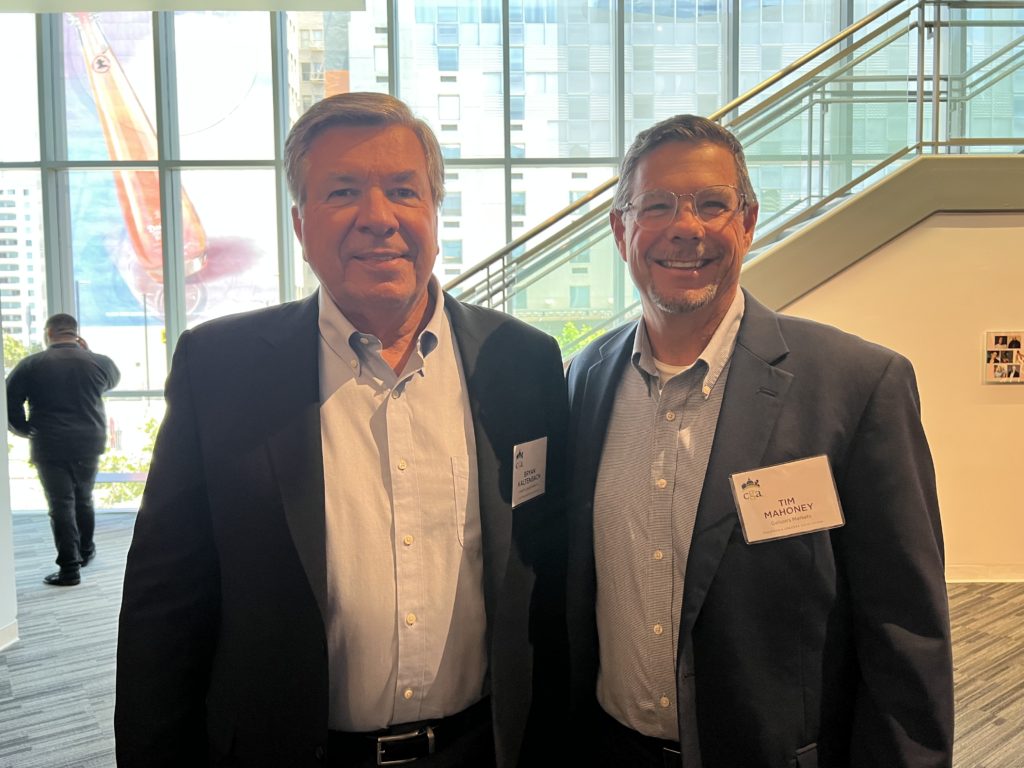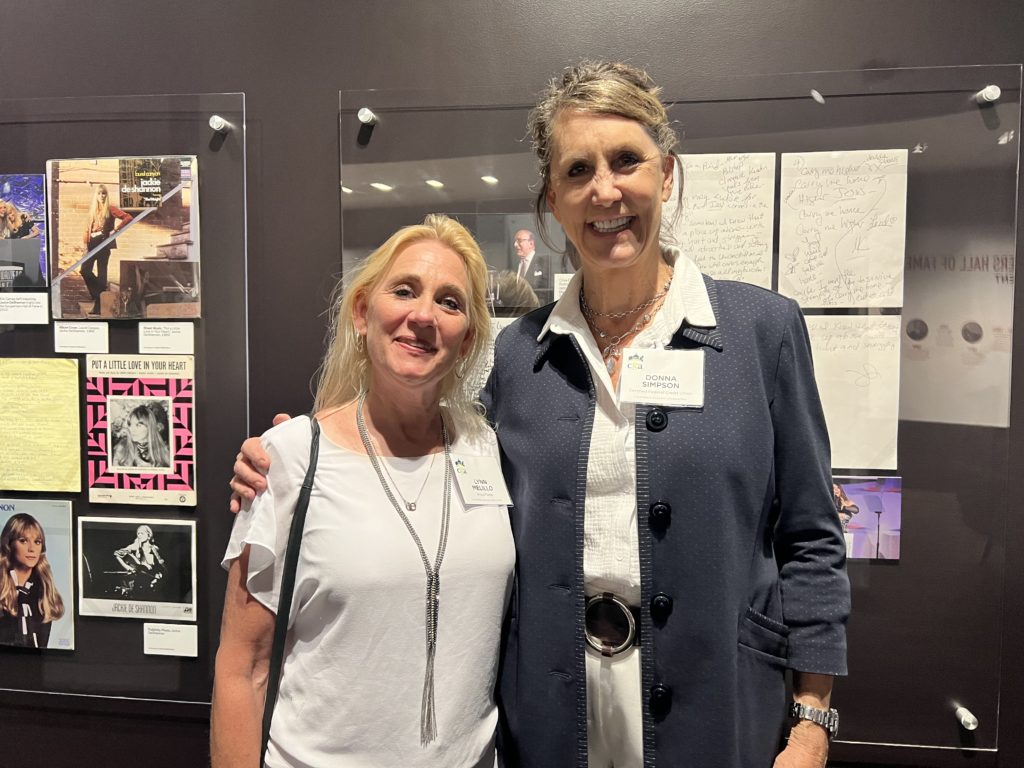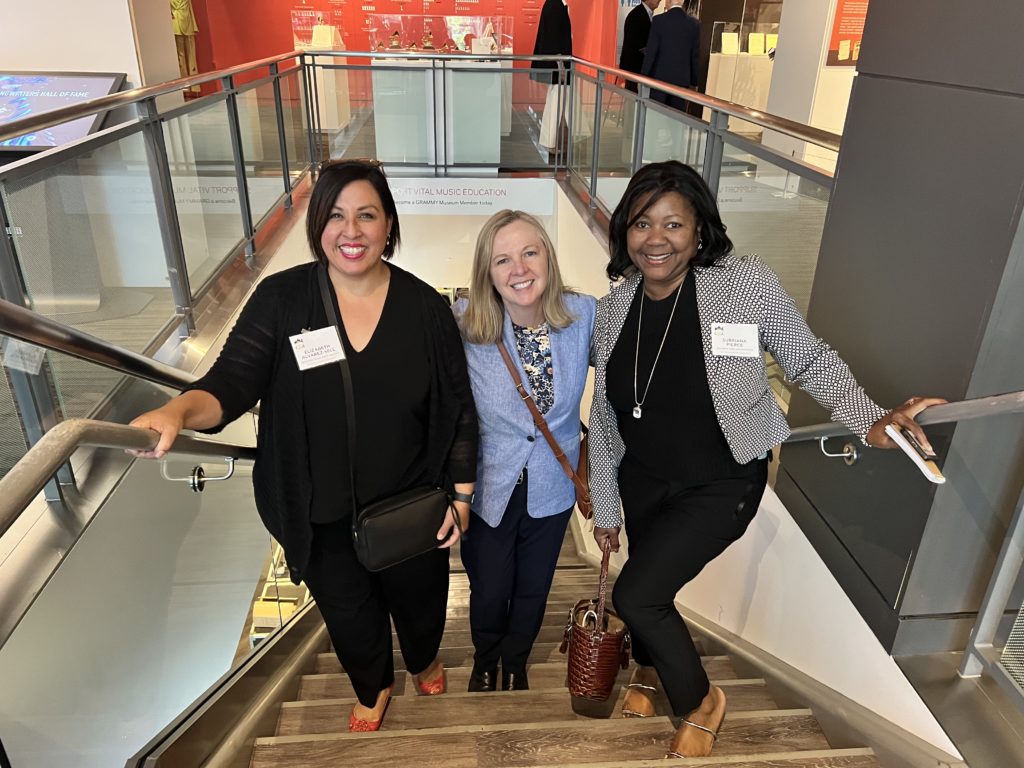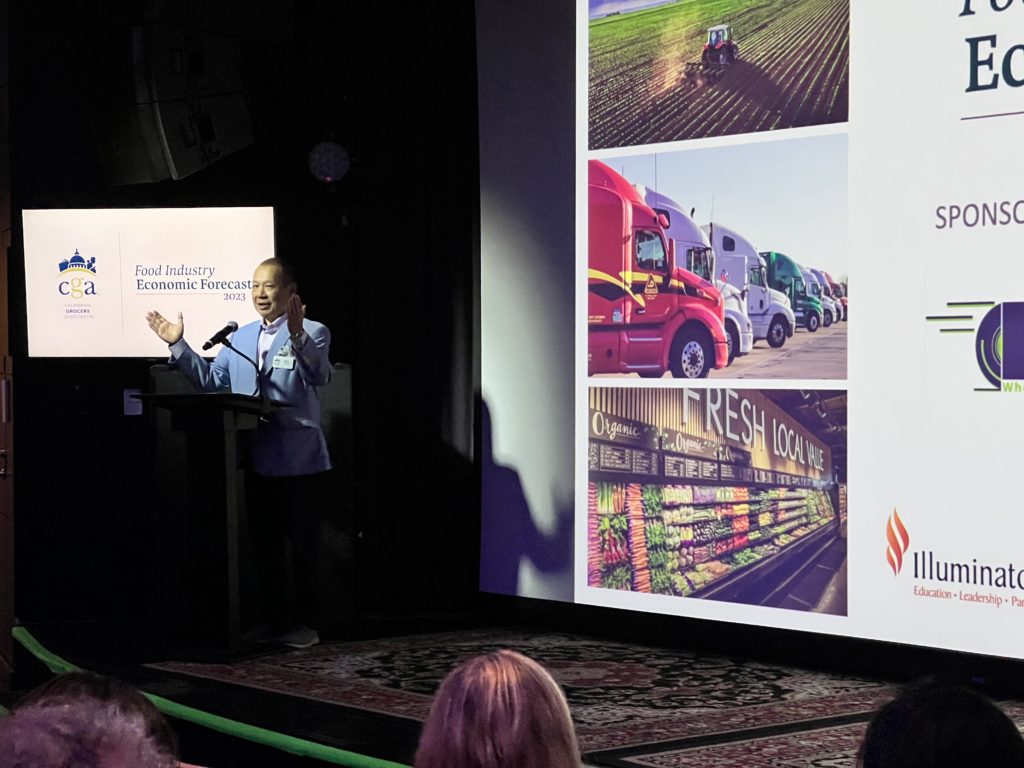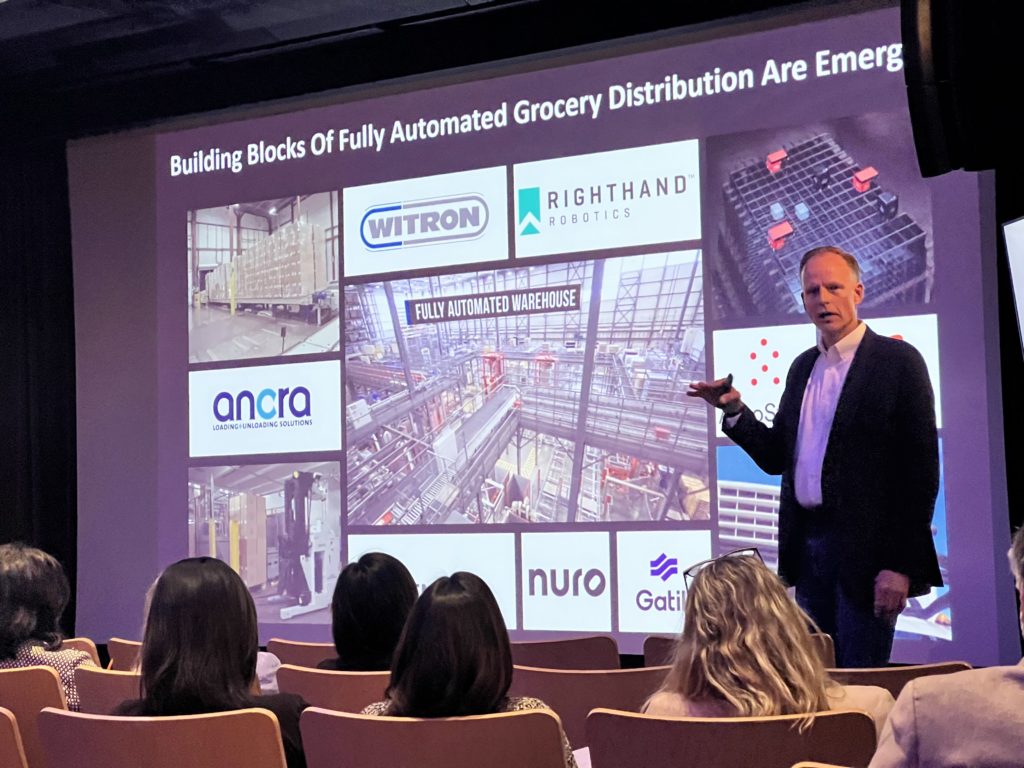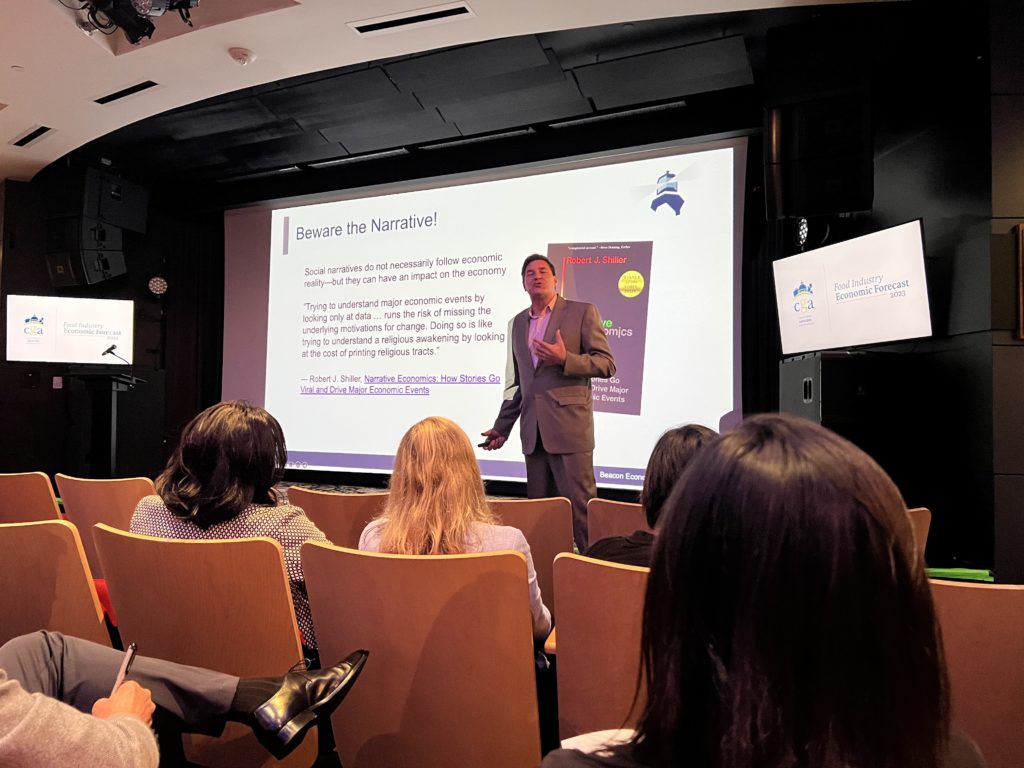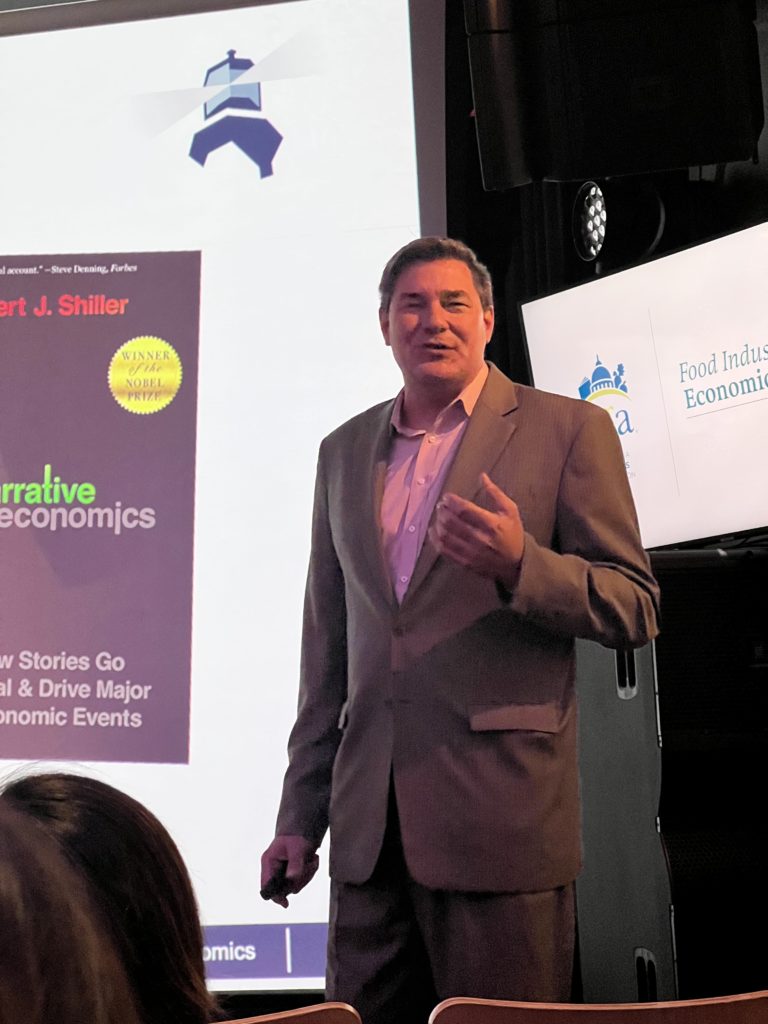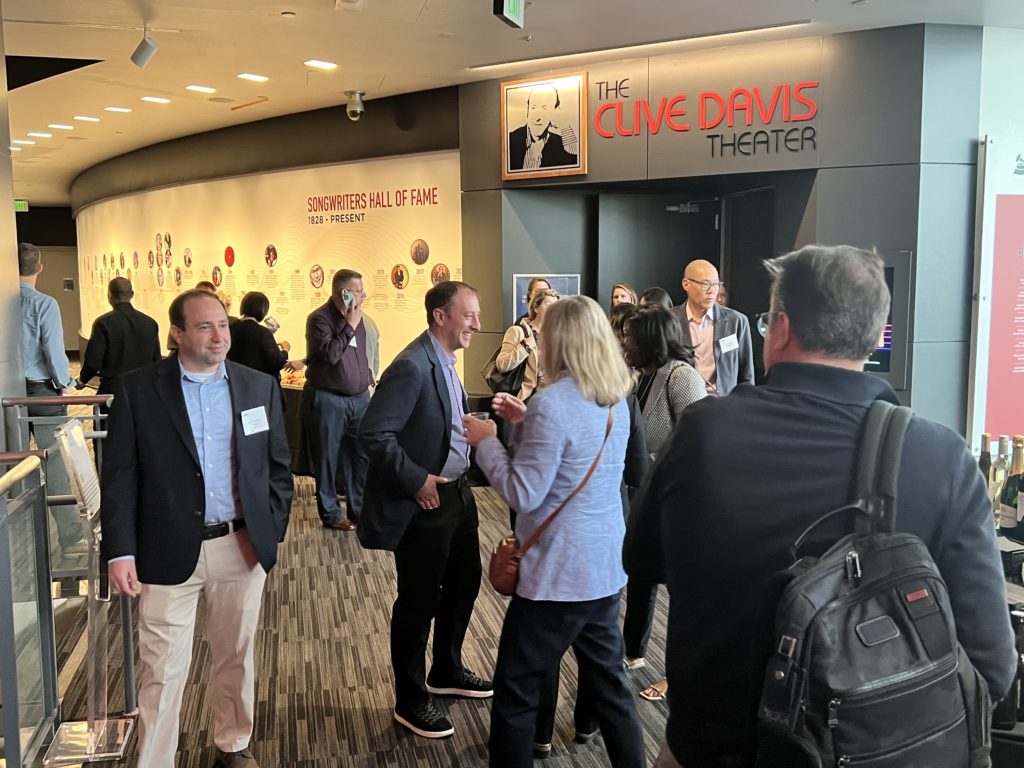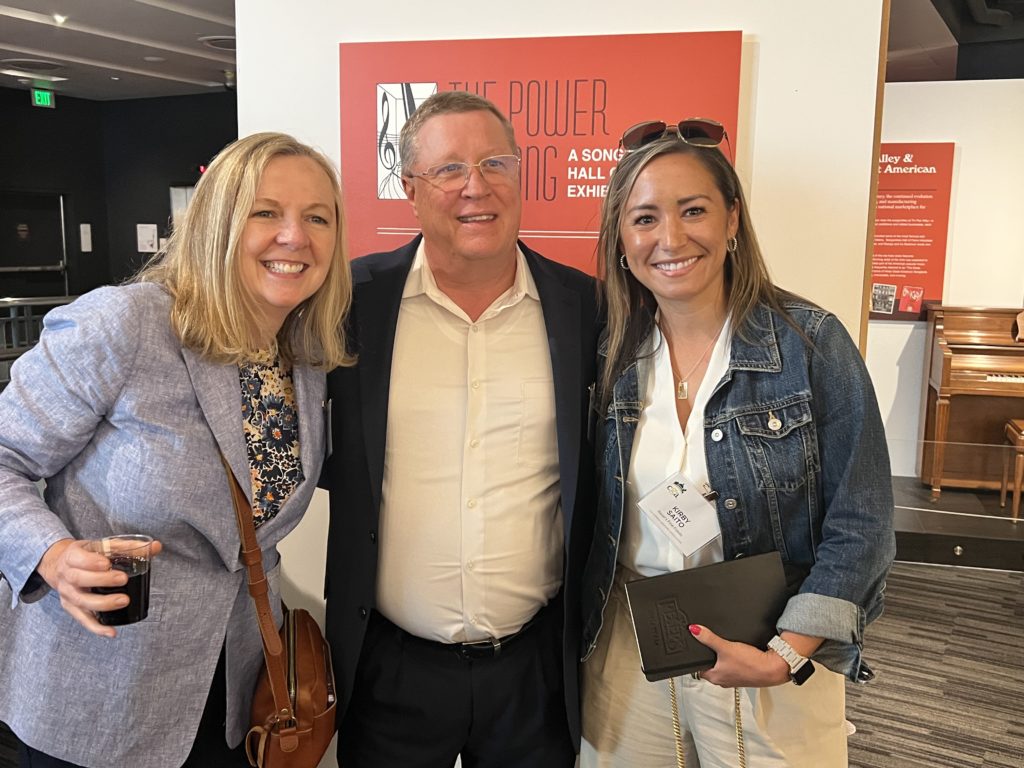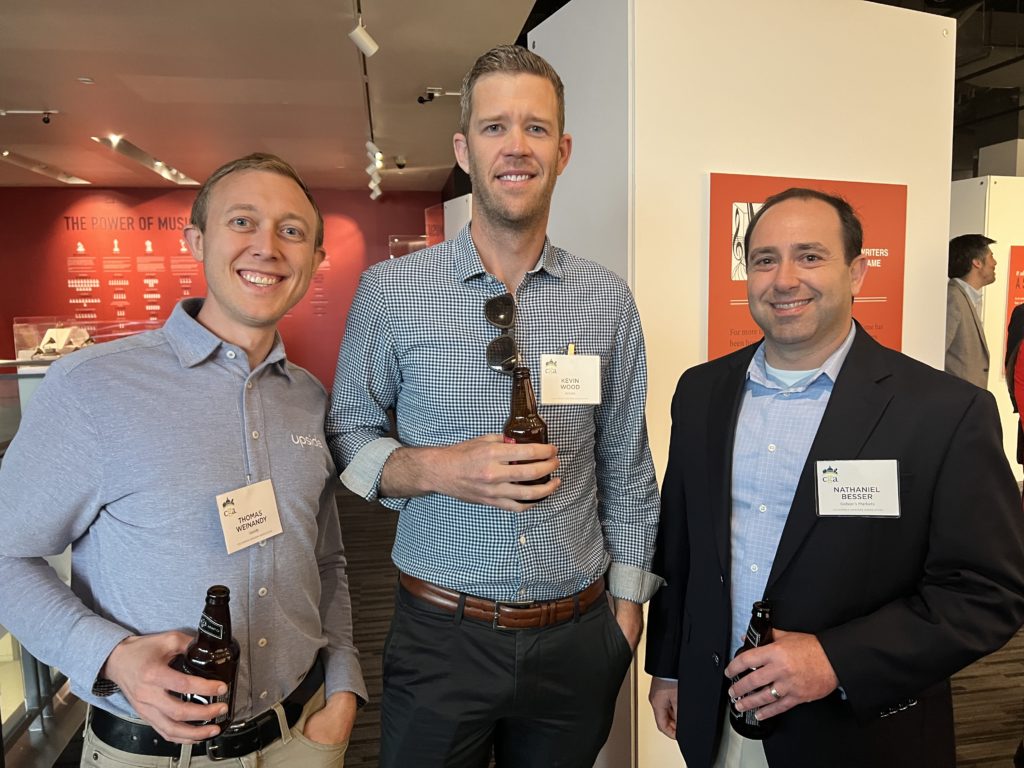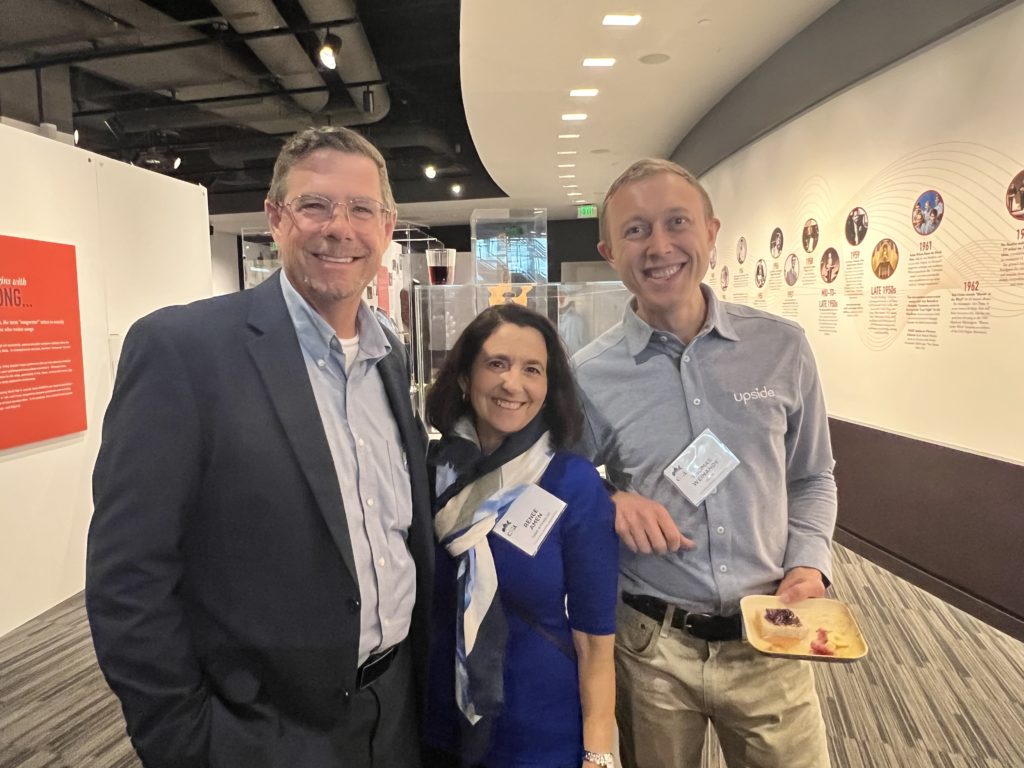First-Ever Food Industry Economic Forecast
As the direction of the economy — everything from interest rates and real estate to inflation — continues to garner headlines, it felt like an apt time to gather Southern California’s grocery community for a mid-summer check-in. The first-ever California Grocers Association Food Industry Economic Forecast took place at the GRAMMY Museum in downtown Los Angeles and brought together industry leaders to zero in on macroeconomic factors, such as the supply chain, labor pool, consumer financial health, and opportunities in technology.
In collaboration with The Illuminators, the Food Industry Economic Forecast also served as the front-end of CGA’s strategic planning meeting, which took place the following day and aimed to inspire the organization’s agenda for the next handful of years.
The forecast event paired presentations from Dr. Chris Thornberg and John S. Phillips. Thornberg is the founder of Beacon Economics, a research company which consults with private industry, cities, counties, and public agencies to create economic studies. Phillips is the SVP of Customer Supply Chain and Go-to-Market at PepsiCo.
The PepsiCo executive kicked off the event with an hourlong report on the supply chain and innovation opportunities in the food and beverage industry. His presentation drew plaudits from attendees, especially for its information about smart labels, QR code utilization, and automation. In a world where both consumers and regulators have an insatiable appetite for understanding what’s in food and beverage products and why, smart labels empowered by QR code technology offer the ability for product information to be unconstrained by physical packaging space. Similarly, new advances in automation offers the potential for production to be unbound by human capital.
This last note is important, and it is a central argument in Dr. Thornberg’s work. By the esteemed economist’s thinking labor challenges are not unique to the food industry, and in California, are the product of the persistent housing shortage and demographics. Similar to Phillips, Thornberg believes every business should be pursuing an automation strategy.
Outside of technology and automation, the economist ran through a high volume of key economic indicators, all utilized to illustrate his main contention of the day: The media narratives that focus on the looming recession are misaligned with the data. Instead, data around consumer savings and spending across many discretionary categories leads to a much rosier picture. In fact, the greatest danger to consumers is the doom-loop, recessionary narrative becoming a self-fulfilling prophecy.
With plenty of food for thought to digest, the forecast was followed by an industry mixer where supplier and wholesale executives had the chance to mix and mingle with some of the region’s sharpest grocery retailers. Thank you to everyone who attended, and to our sponsors RMS and FMS. We hope to see you again at one of the Association’s other events this summer or fall.

